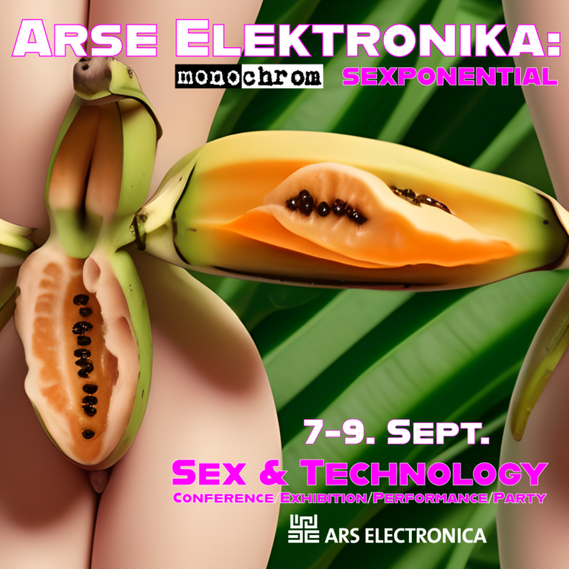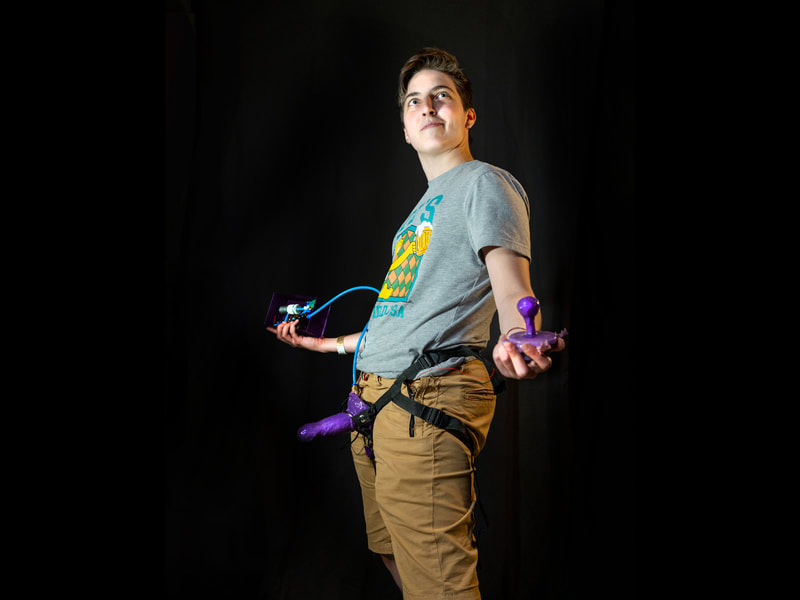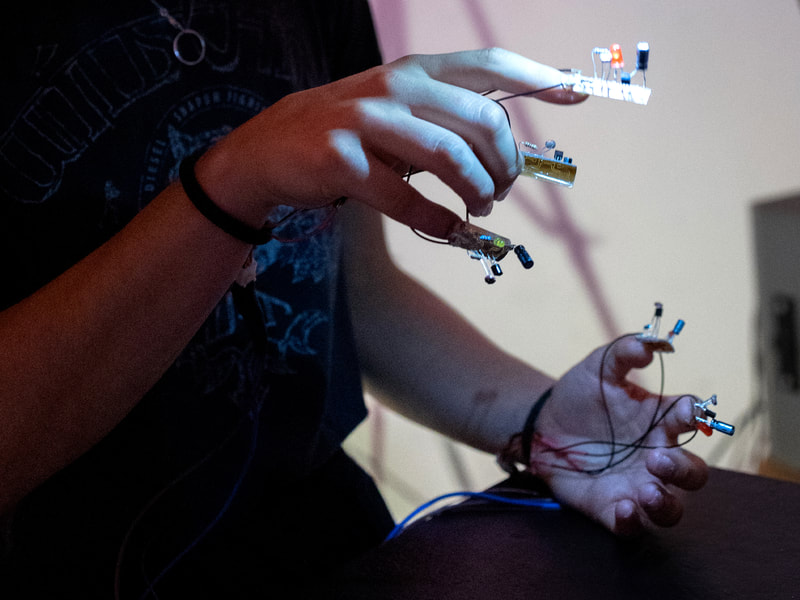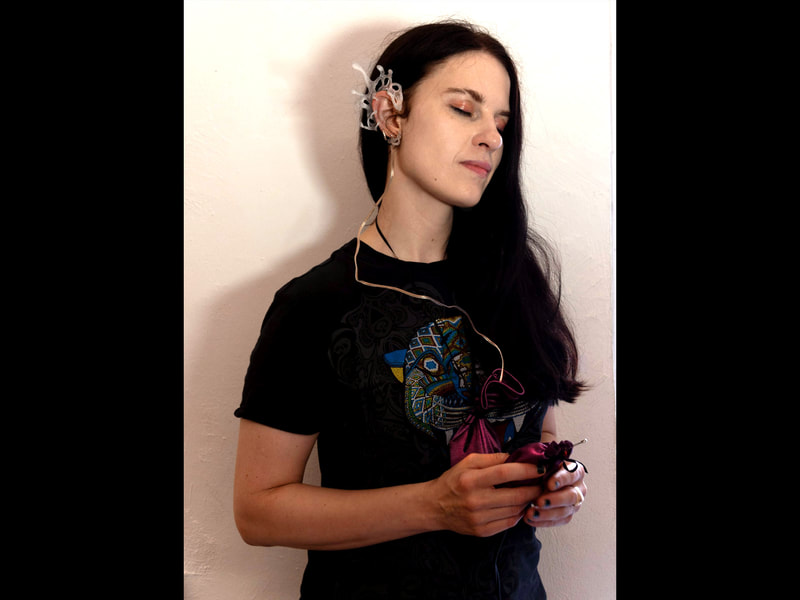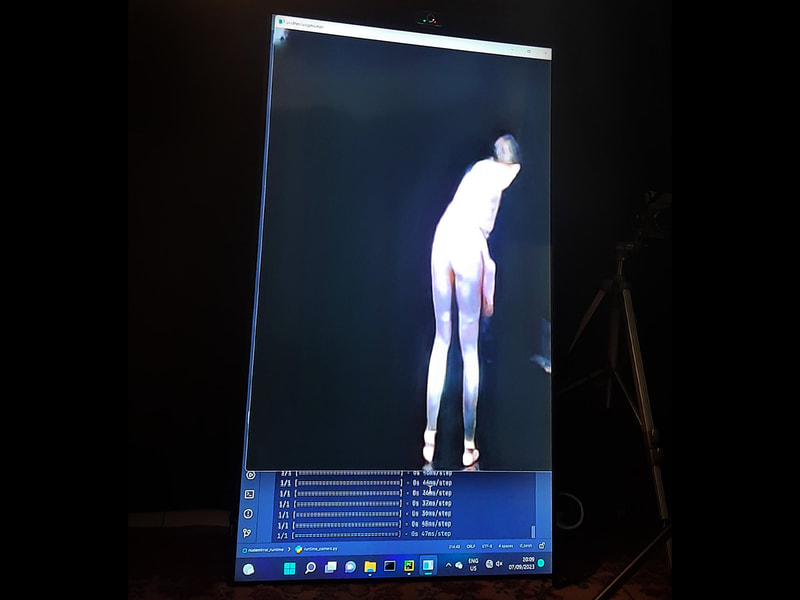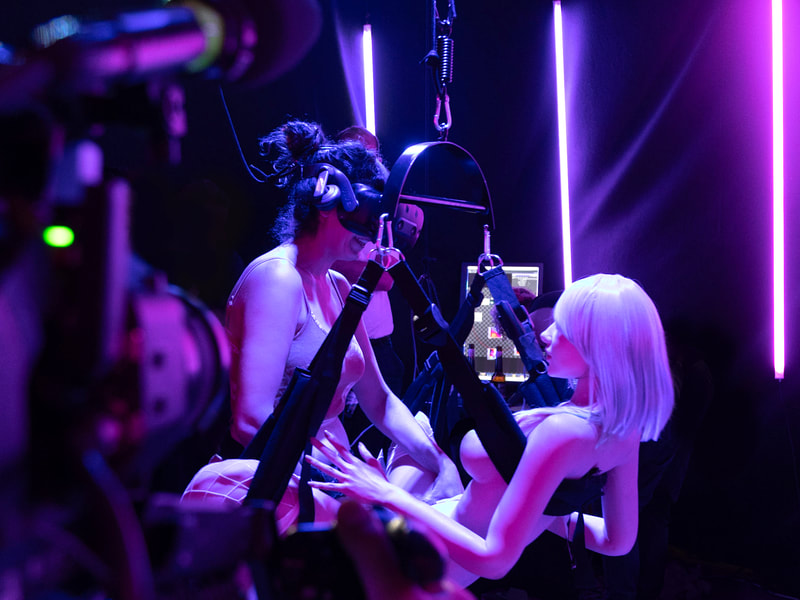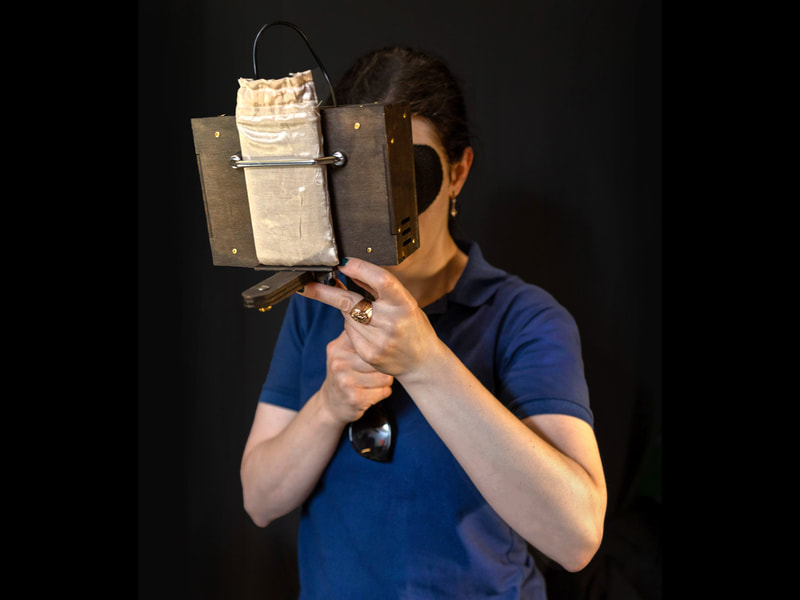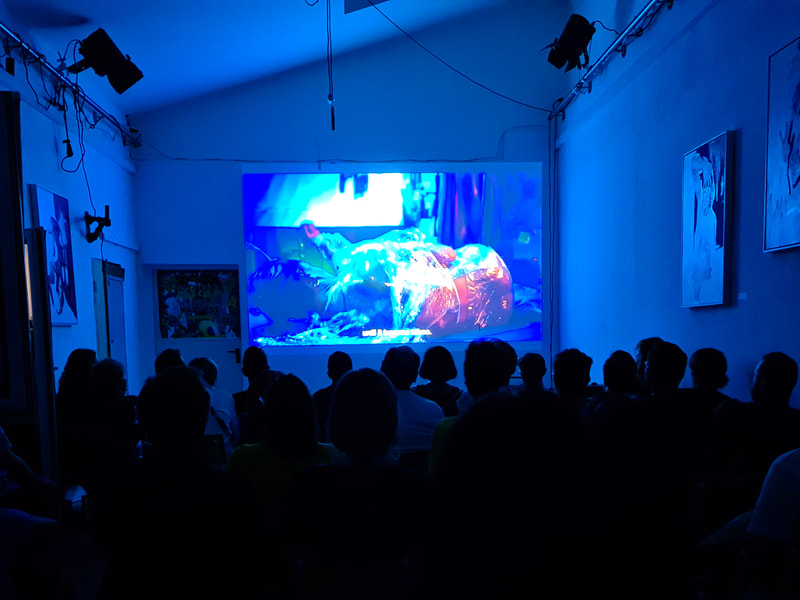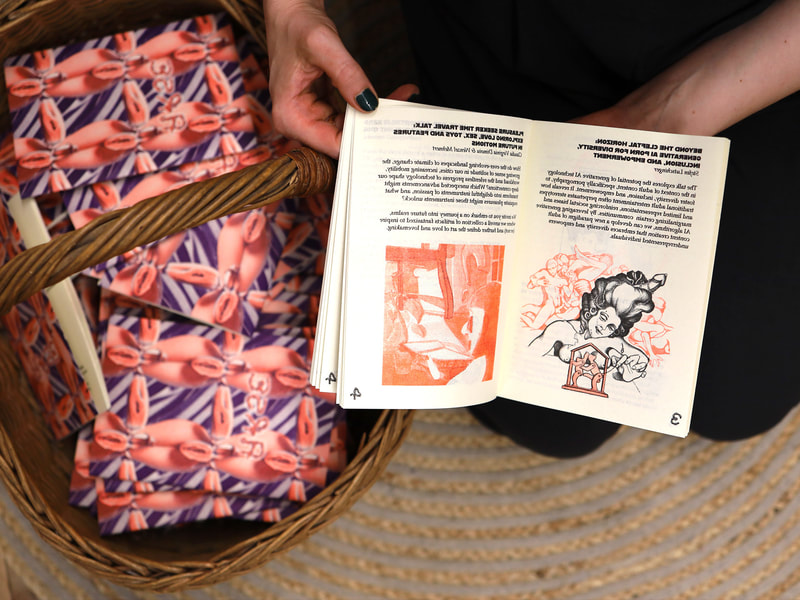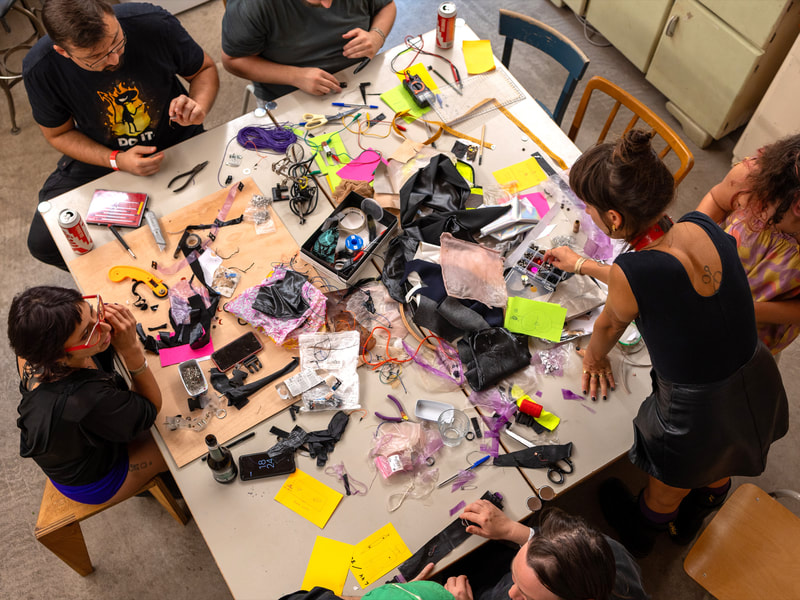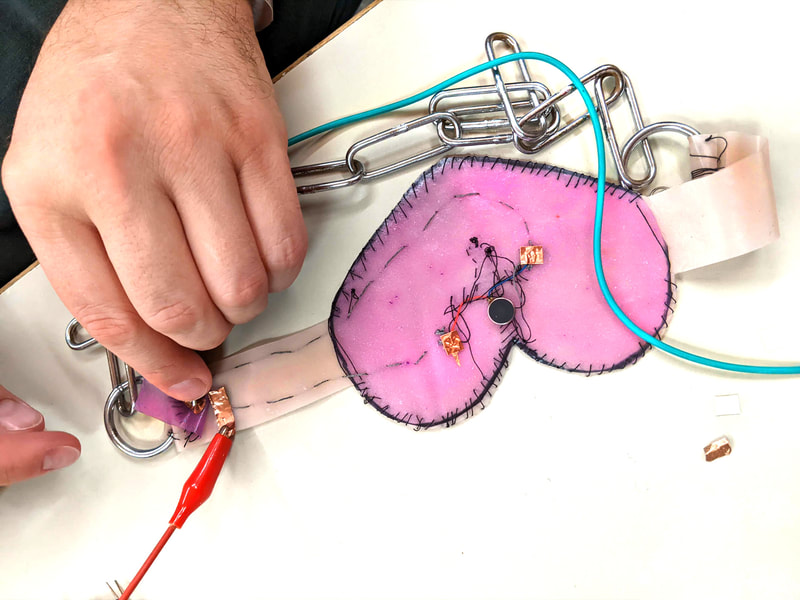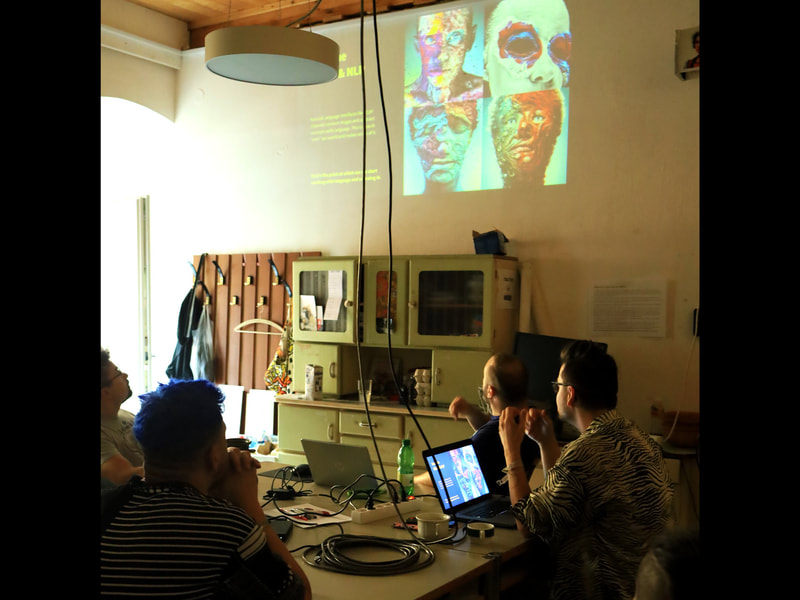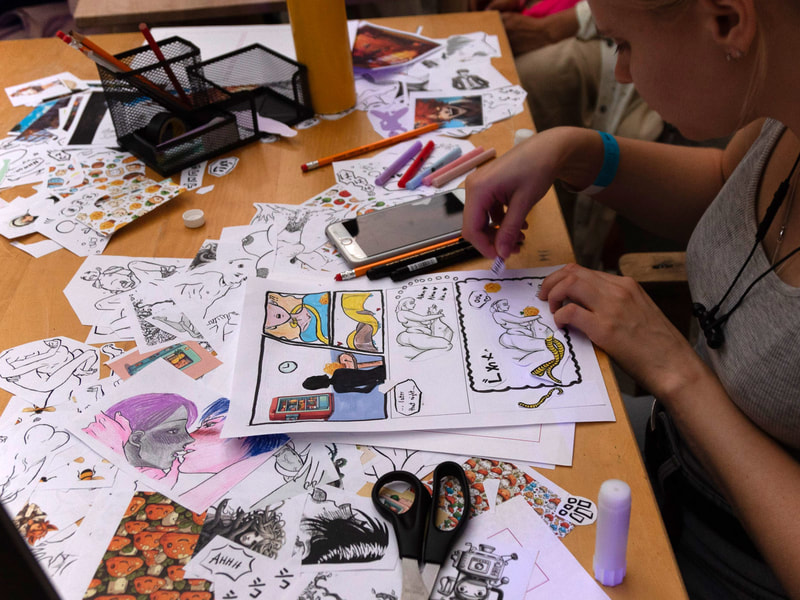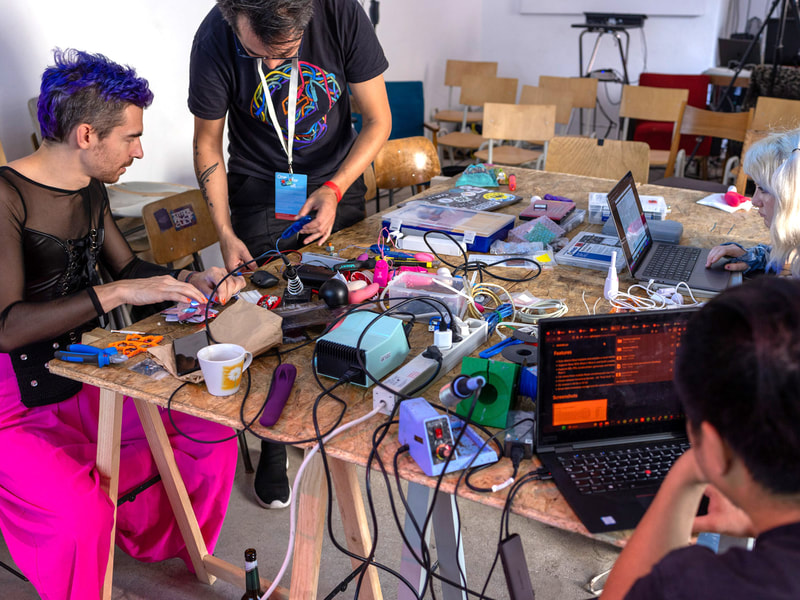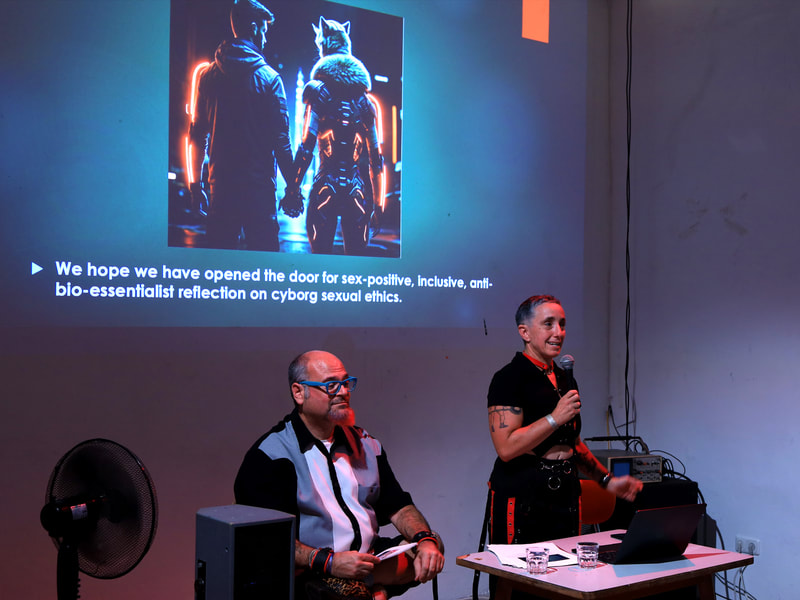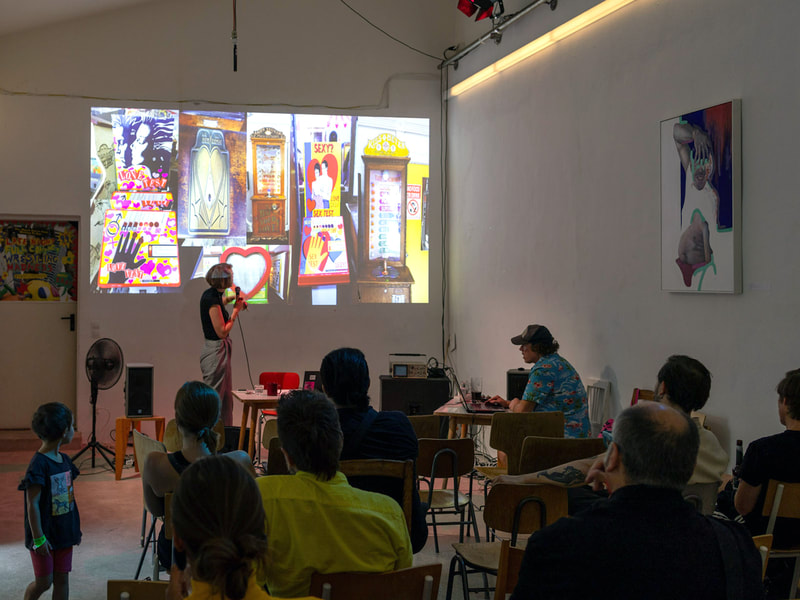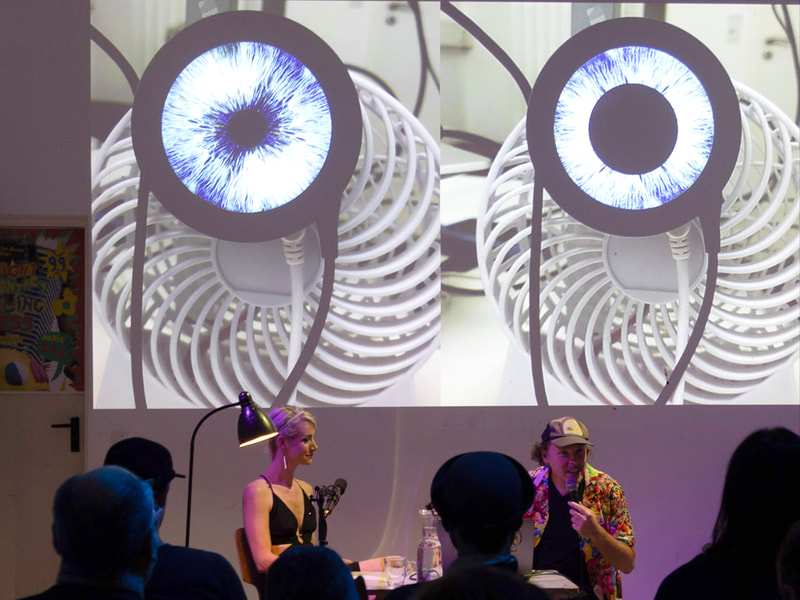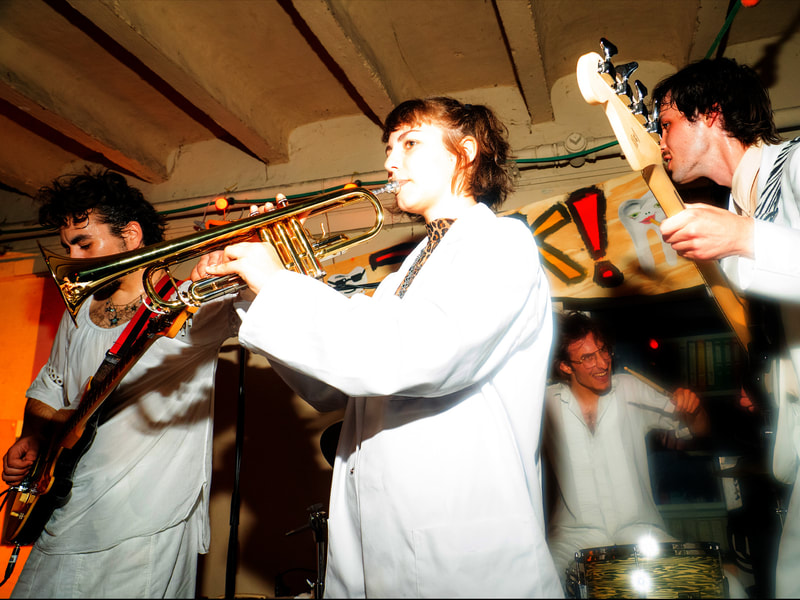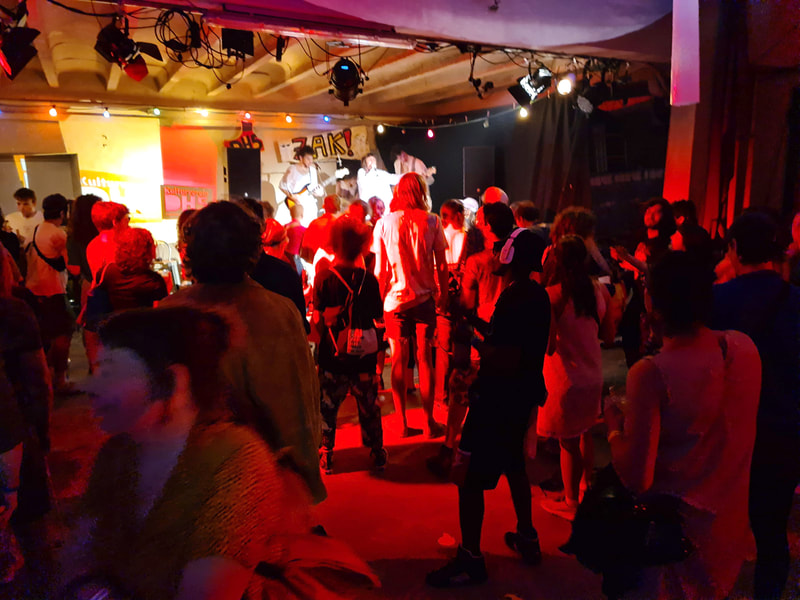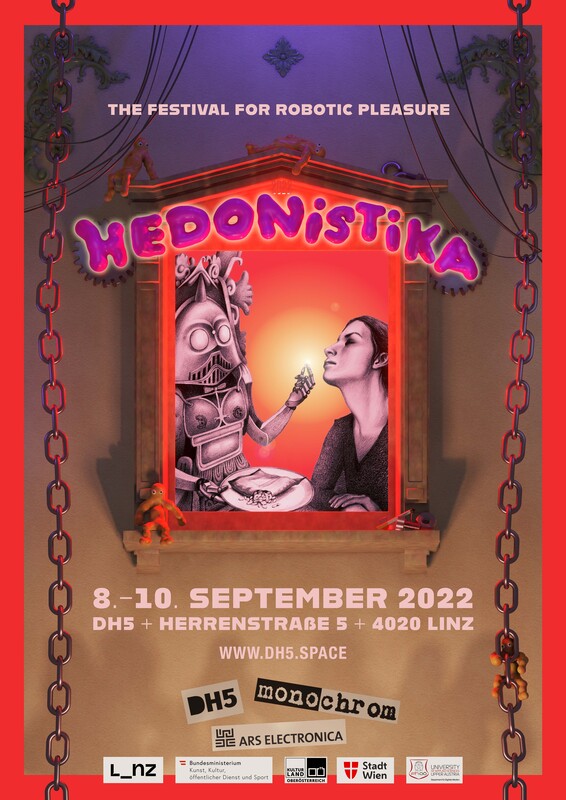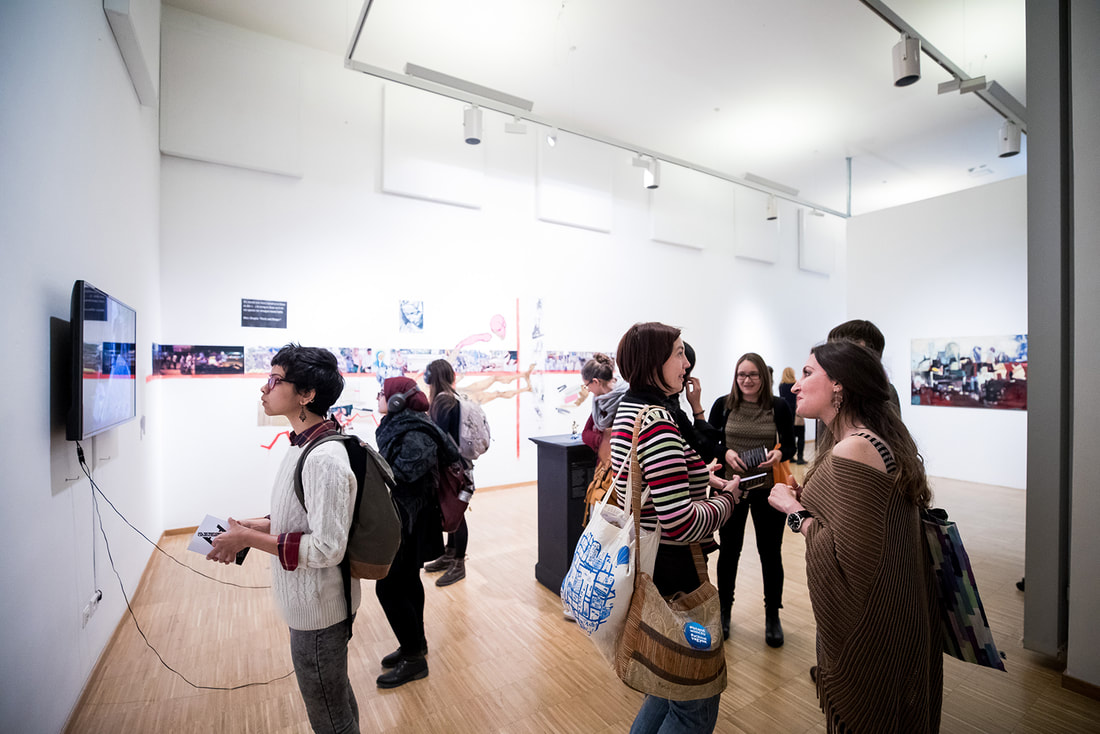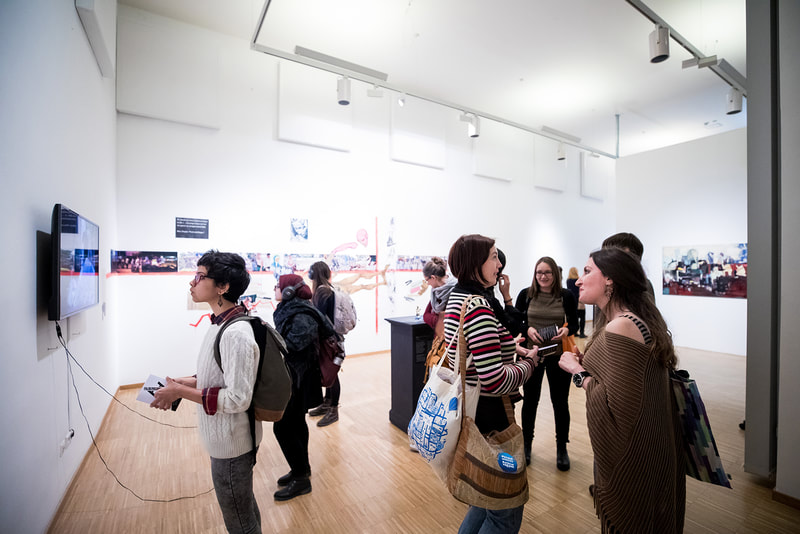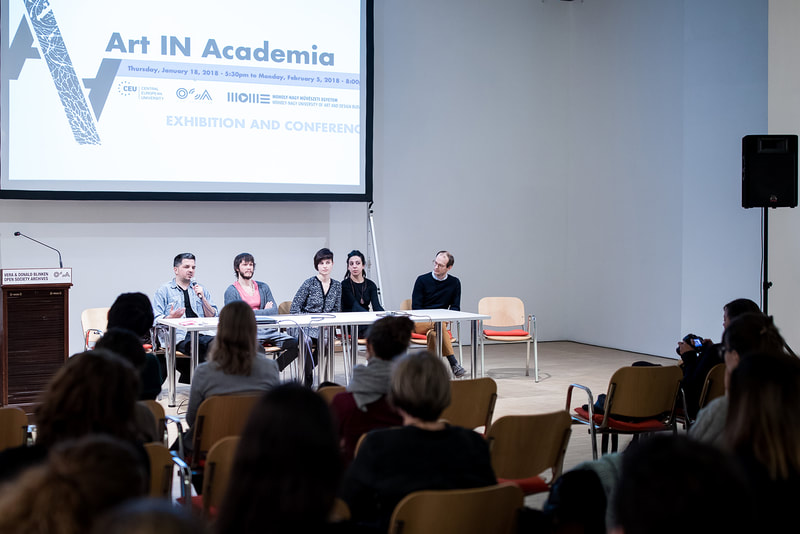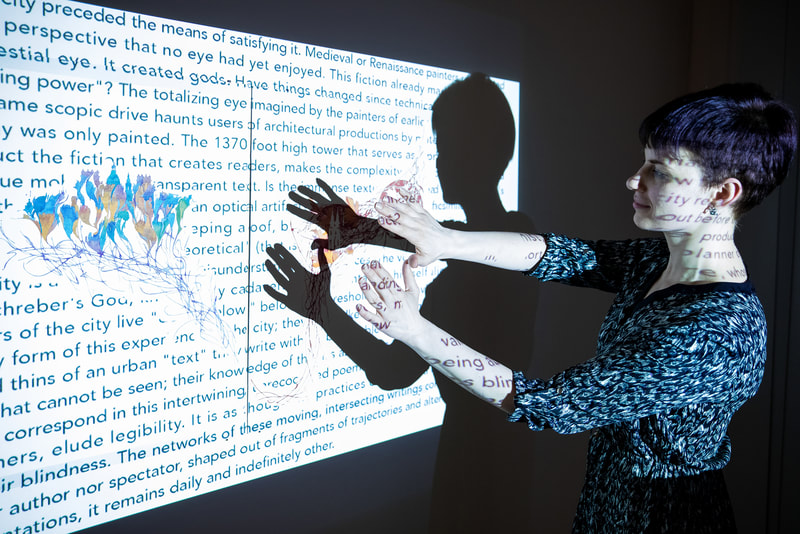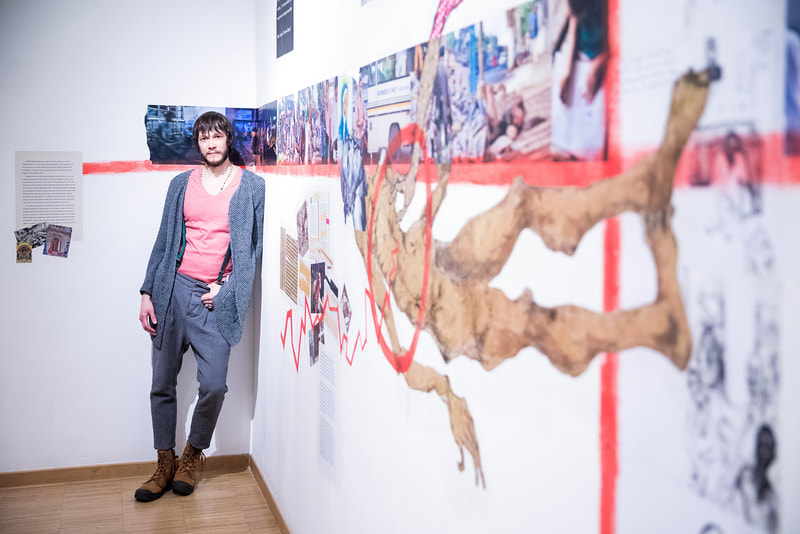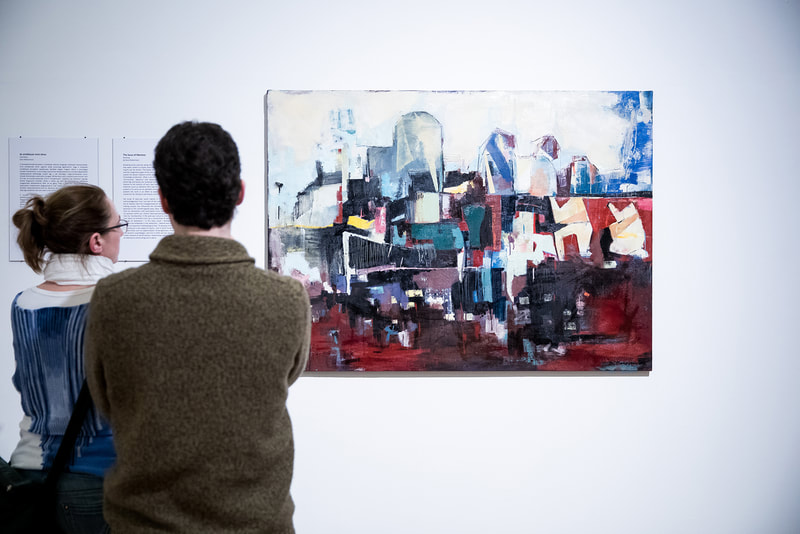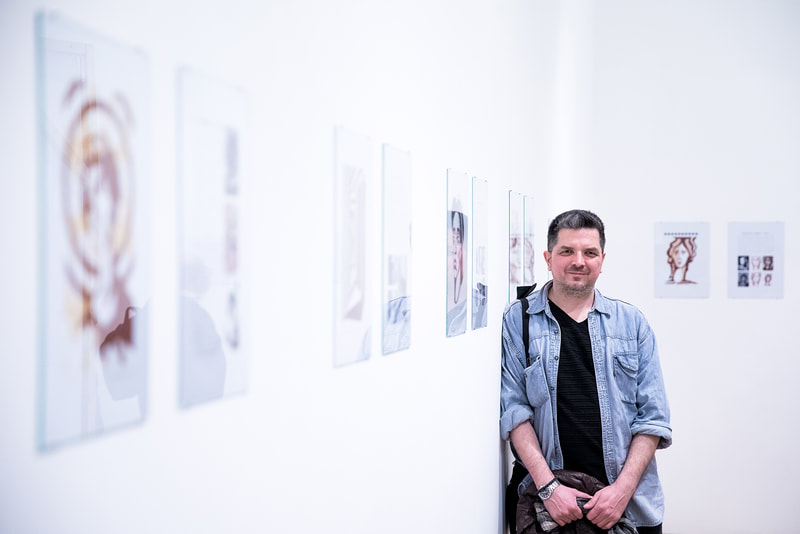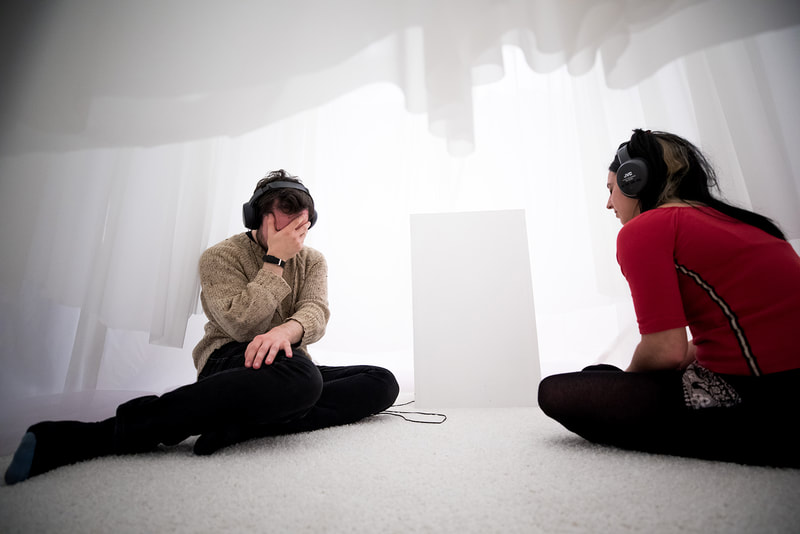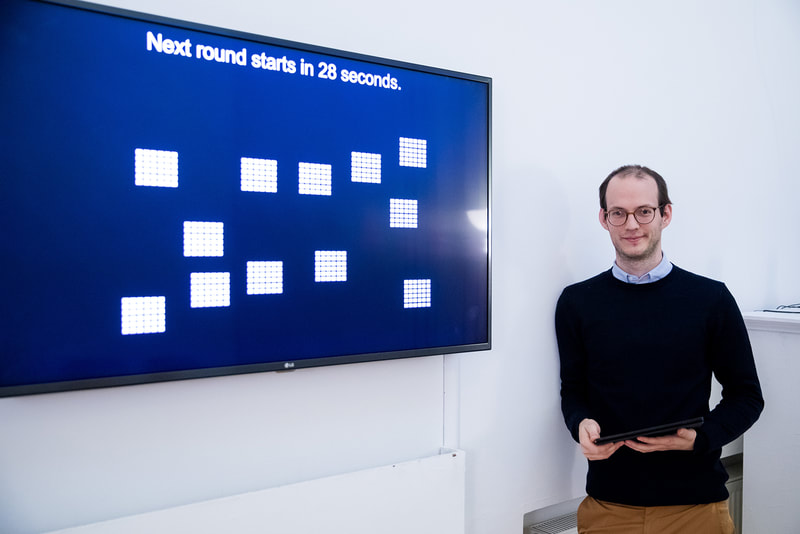EVENT ORGANIZATION & CURATORIAL PRACTICE
ARSE ELEKTRONIKA 2023: SEXPONENTIAL (September 7-9, 2023)
Event type: festival and conference on Artificial Intimacy, or the technological mediation of affection, companionship, and desire.
Since 2007, Arse Elektronika has globally explored the intertwinement of technological development and human sexuality. DH5 brought monochrom’s Arse Elektronika to Europe for the first time and integrated it into Ars Electronica Festival, one of the oldest and internationally most acclaimed festivals of media arts and technology. Together with monochrom, we created an unforgettable festival with highly versatile content and an ecstatic party.
Arse Elektronika 2023: Sexponential delved into heated debates over the role of AI-driven practices in expressing and fulfilling sexual desires and the future of the sex industry. While previous iterations of Arse Elektronika focused primarily on hacking and creative exploration of technologies, the feminist team of DH5 expanded the range of perspectives to adjacent topics such as privacy, consent and data security, gender construction and expression, improvement of public understanding of AI-powered technologies, ethical and legal aspects of sex tech, its impacts on the lives of sex workers, and prospects of a more inclusive, environmentally sustainable sex industry.
Team: Johannes Grenzfurthner (monochrom, the founder of Arse Elektronika), Kat Suryna, Thomas Preindl, Walter Stadler, and other members of DH5, Jasmin Hagendorfer.
Project count: 40.
Venue: Damen & Herrenstraße DH5
Photography: DH5
Since 2007, Arse Elektronika has globally explored the intertwinement of technological development and human sexuality. DH5 brought monochrom’s Arse Elektronika to Europe for the first time and integrated it into Ars Electronica Festival, one of the oldest and internationally most acclaimed festivals of media arts and technology. Together with monochrom, we created an unforgettable festival with highly versatile content and an ecstatic party.
Arse Elektronika 2023: Sexponential delved into heated debates over the role of AI-driven practices in expressing and fulfilling sexual desires and the future of the sex industry. While previous iterations of Arse Elektronika focused primarily on hacking and creative exploration of technologies, the feminist team of DH5 expanded the range of perspectives to adjacent topics such as privacy, consent and data security, gender construction and expression, improvement of public understanding of AI-powered technologies, ethical and legal aspects of sex tech, its impacts on the lives of sex workers, and prospects of a more inclusive, environmentally sustainable sex industry.
Team: Johannes Grenzfurthner (monochrom, the founder of Arse Elektronika), Kat Suryna, Thomas Preindl, Walter Stadler, and other members of DH5, Jasmin Hagendorfer.
Project count: 40.
Venue: Damen & Herrenstraße DH5
Photography: DH5
HEDONISTIKA 2022 (September 8-10, 2022)
Event type: festival on non-industrial robotics and robotic art.
Previously held in Montreal, Canada, and Holon, Israel, Hedonistika is an international gathering that encourages bridging the gap between our daily lives and mechatronics, typically confined to highly specialized industrial processes. It promotes playful exploration and hacking of black-boxed technologies through robotic art, DIY, and interactive machine prototyping. Founded by the art-technology-philosophy group monochrom in 2014, Hedonistika resumes in 2022, with the support of the cultural club DH5, in Linz, Austria.
Hedonistika 2022 presented a range from playful to sustainability-driven exploration, emphasizing its commitment to opposing corporate profit. The festival delved into the sociocultural construction of technology, questioning various ideologies that determine its value, who should benefit from it, and which objectives are worth pursuing. Hedonistika 2022 thus embodied a notion of sustainability compatible with fulfilling one of the basic principles of our existence—pleasure-seeking.
Team: Günther Friesinger & Johannes Grenzfurthner (monochrom), Thomas Preindl, Walter Stadler, Kat Suryna, & other members of DH5.
Project count: 38.
Venue: Damen & Herrenstraße DH5
Photography: DH5
Previously held in Montreal, Canada, and Holon, Israel, Hedonistika is an international gathering that encourages bridging the gap between our daily lives and mechatronics, typically confined to highly specialized industrial processes. It promotes playful exploration and hacking of black-boxed technologies through robotic art, DIY, and interactive machine prototyping. Founded by the art-technology-philosophy group monochrom in 2014, Hedonistika resumes in 2022, with the support of the cultural club DH5, in Linz, Austria.
Hedonistika 2022 presented a range from playful to sustainability-driven exploration, emphasizing its commitment to opposing corporate profit. The festival delved into the sociocultural construction of technology, questioning various ideologies that determine its value, who should benefit from it, and which objectives are worth pursuing. Hedonistika 2022 thus embodied a notion of sustainability compatible with fulfilling one of the basic principles of our existence—pleasure-seeking.
Team: Günther Friesinger & Johannes Grenzfurthner (monochrom), Thomas Preindl, Walter Stadler, Kat Suryna, & other members of DH5.
Project count: 38.
Venue: Damen & Herrenstraße DH5
Photography: DH5
ART IN ACADEMIA (January 18 - February 5, 2018)
photo by Adrian Zoltan
The relationship between art and academic research can take different shapes and meanings. Recent decades have seen an increase in artists engaging in traditional academic research settings, such as laboratories, collaborating with scientists, philosophers, engineers, and the like. The different interactions between art and academia seem to offer new perspectives to known and complex issues across different fields, allowing artists and researchers to blur the lines between artistic practice and academic research. Although collaboration between artists and researchers has become the main format in these transdisciplinary practices, this interaction can also take place within individuals in the form of artist-researchers and researcher-artists. Art IN Academia explores a range of possible ways in which academic endeavors, other than art history and art theory, can inform, inspire or become complemented by the art created by scholars and researchers within institutional academic walls.
Aleksandar Pantic, a historian and graduate of the Cultural Heritage Studies, conducts a piece of artistic research into archetypical models of visual composition by means of an extensive analysis of traditional artworks, handcrafted items, and iconographies. Post-Modern Graphemes offers a series of simple and memorable graphical forms that stand somewhere in between artistic image and graphic design.
In the projects created by cognitive scientist Thomas Wolf and anthropologist Egor Novikov, art figures as part and extension of academic research. Das Tanztheremin by Thomas Wolf invites visitors to create sounds together as he tests scientific hypotheses about how people coordinate their actions in time, in space and in other domains such as musical pitch and harmony. In Dirty Body Sacred, Egor Novikov visually maps the theoretical conceptualization of the central charity object—the homeless destitute people—and carries an interdisciplinary investigation on social exclusion and structures of dirt/purity, in which art figures as a source of models and factual material.
Kat Suryna, a philosopher, and Sara Maksimović, a gender studies specialist, take art as a form of meta-discourse within their research fields. Landscapes of Mind by Kat Suryna challenges the discourse-dependent art and reflects on distinctive features of two different territories in philosophical thinking—continental and analytical philosophy— by making them speak about the meaning of the artwork. The Issue of Memory by Sara Maksimović questions her positionality as a researcher in the study of an inherited memory of historical trauma and disrupts the subject/object dichotomy often found in ethnographic research.
Inspired by the metaphysics of consciousness, Untitled (YOU) by philosopher Marta Santuccio, explores the nature and boundaries of consciousness through perception and introspection and pushes the boundaries of thinking outside the often too narrow box of academic philosophy.
Curator: Kat Suryna
Partners: Center for Arts and Culture (CEU); The Vera & Donald Blinken Open Society Archives
Translators: Karolin Benko, Dorottya Urai, and Lilla Foldy-Molnar
Photography: Adrian Zoltan
Aleksandar Pantic, a historian and graduate of the Cultural Heritage Studies, conducts a piece of artistic research into archetypical models of visual composition by means of an extensive analysis of traditional artworks, handcrafted items, and iconographies. Post-Modern Graphemes offers a series of simple and memorable graphical forms that stand somewhere in between artistic image and graphic design.
In the projects created by cognitive scientist Thomas Wolf and anthropologist Egor Novikov, art figures as part and extension of academic research. Das Tanztheremin by Thomas Wolf invites visitors to create sounds together as he tests scientific hypotheses about how people coordinate their actions in time, in space and in other domains such as musical pitch and harmony. In Dirty Body Sacred, Egor Novikov visually maps the theoretical conceptualization of the central charity object—the homeless destitute people—and carries an interdisciplinary investigation on social exclusion and structures of dirt/purity, in which art figures as a source of models and factual material.
Kat Suryna, a philosopher, and Sara Maksimović, a gender studies specialist, take art as a form of meta-discourse within their research fields. Landscapes of Mind by Kat Suryna challenges the discourse-dependent art and reflects on distinctive features of two different territories in philosophical thinking—continental and analytical philosophy— by making them speak about the meaning of the artwork. The Issue of Memory by Sara Maksimović questions her positionality as a researcher in the study of an inherited memory of historical trauma and disrupts the subject/object dichotomy often found in ethnographic research.
Inspired by the metaphysics of consciousness, Untitled (YOU) by philosopher Marta Santuccio, explores the nature and boundaries of consciousness through perception and introspection and pushes the boundaries of thinking outside the often too narrow box of academic philosophy.
Curator: Kat Suryna
Partners: Center for Arts and Culture (CEU); The Vera & Donald Blinken Open Society Archives
Translators: Karolin Benko, Dorottya Urai, and Lilla Foldy-Molnar
Photography: Adrian Zoltan
